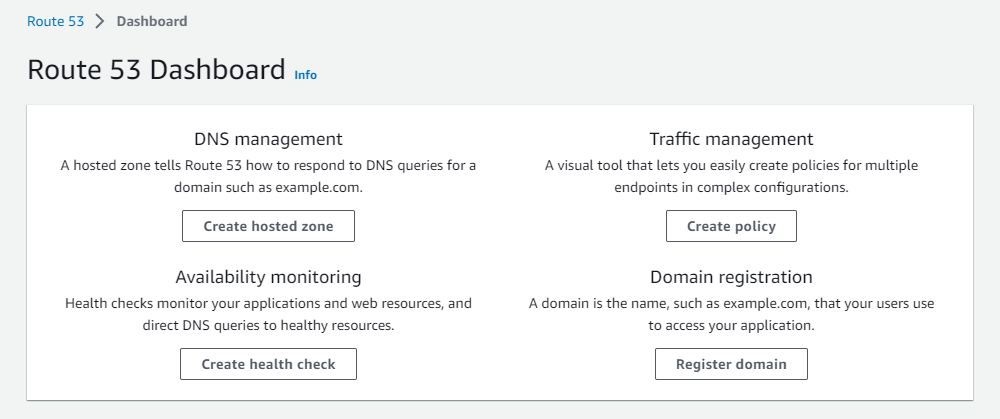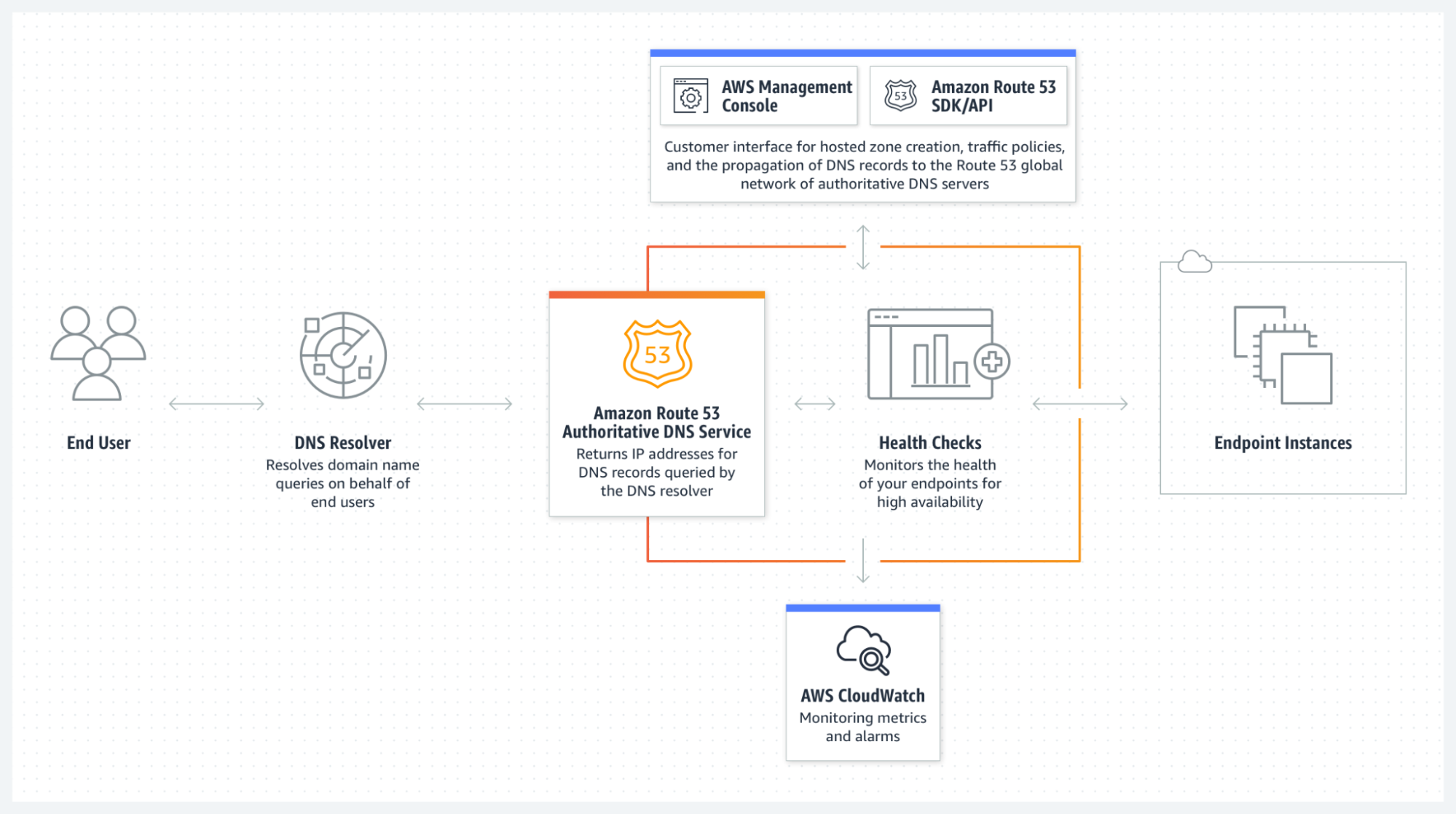AWS Route 53: Not Your Average DNS Service

Amazon Web Services (AWS) Route 53 does far more than simple DNS resolution. It’s an authoritative, routable DNS service that offers more than your average DNS. Are you taking advantage of Route 53? Before we go into the benefits of Route 53, let’s discuss DNS and its role in domain names and IP addresses.
What is Amazon Route 53?
Amazon Route 53 is a reliable, flexible, and highly available DNS service with integration capabilities throughout the AWS infrastructure.
The name for Route 53 comes from the service’s port number. DNS uses port 53 on both TCP and UDP connections.
DNS queries and responses are sent and received on port 53 at both ends of the transmission.
Amazon Route 53 is an authoritative DNS service. That means it stores and manages accurate and up-to-date DNS information for domains.
Recursive DNS servers, on the other hand, simply relay domain name information between end users and authoritative DNS servers. To learn more about Route 53 and other AWS services, check out our AWS training on CBT Nuggets.
What Does Amazon Route 53 Do?
Like any DNS service, Route 53 resolves domain name queries for end users. But Route 53 does more than DNS management. You can create policies for DNS traffic management.
By creating health checks, you can perform checks to monitor the availability of your applications and resources. Additionally, you can register domain names as well as transfer domains from other registration providers. Each of these services is easily reached through the Route 53 Dashboard, as shown below:
How Does Amazon Route 53 Work?
Public Vs. Private Hosted Zones
DNS management on Amazon Route 53 is accomplished in one of two ways. A public-hosted zone determines how traffic is routed on the internet. A private hosted zone manages DNS traffic within an Amazon VPC.
Route 53 Resolver
Available by default in all VPCs, Route 53 Resolver uses inbound and outbound endpoints to respond recursively to DNS queries from AWS resources. It provides DNS resolution for both public and private hosted zones and on-premise network environments. Resolver integrates easily with AWS resources on your network.
Other Route 53 Features
Amazon Route 53 includes many other features, including readiness checks, safety rules, and zone apex support for CloudFront and S3. One of the most significant benefits of Route 53 is its intelligent DNS routing capabilities.
The Basics of DNS
A domain name system (DNS) associates easily recognized website names with the IP addresses that make web servers and other components discoverable on the internet.
The common analogy used for a domain name system is the phone book. Of course, that’s a bit old school now, as these aren’t normally found in most homes like they were in the 1990s and beyond. Today, we might think of the contact list on our phones, where we click on names rather than phone numbers. DNS enables your computing device to route traffic through the internet's infrastructure by contacting the destination IP address associated with the requested domain name when users put the domain name in their internet browser.
Pairing DNS + IP Address
How does your computer know the correct IP address for a particular domain name or uniform resource locator (URL)? First, it will consult the local cache on your computer to see if the IP address is already there. If not, it will query the DNS nameserver of your internet service provider. If that computer doesn’t know it, the nameserver will query a root nameserver for the IP address. Once the IP address is found, your computer can communicate with the remote device.
Not-So-Intelligent DNS
Resolving a domain name to an IP address is the primary function of DNS. Even the simplest of domain name systems will do that. The problem arises when a destination server fails or is otherwise unavailable. How will your computer find backup resources to connect to the desired service? It can be costly in terms of time, money – and customer loyalty.
The Basics of Amazon Route 53
Traffic Management on Amazon Route 53
You can use a traffic flow visual editor to create policies determining how DNS traffic is routed. Route 53 offers several DNS routing policies:
Simple routing policy is used to perform a function for a single AWS resource.
Failover routing policy provides active-passive failover when a resource becomes unavailable.
Geolocation routing policy is used to route traffic based on the geographical location of users.
Geoproximity routing policy makes routing decisions based on the nearness of an available resource.
Latency routing policy allows you to access resources with the best latency.
IP-based routing policy optimizes traffic based on the user’s IP address.
Multivalue answer routing policy makes a random selection to access DNS records.
Weighted routing policy allows you to allocate available resources in proportion. For example, one server may receive 80% of the responses while another receives 20%.
Final Thoughts on Amazon Route 53
AWS Chief Technology Officer Werner Vogels is famous for saying: “Everything fails, all the time." You can prepare for DNS failure and other problems with AWS Route 53. Regular health checks that lead to DNS failover on AWS can be critical to business continuity and your company’s reputation.
A robust DNS like Amazon Route 53 can handle such interruptions quickly and efficiently. Not only that, Route 53 provides a full range of benefits that far exceed the offering of your average DNS provider. Route 53 is much more than just a domain name phone book.
delivered to your inbox.
By submitting this form you agree to receive marketing emails from CBT Nuggets and that you have read, understood and are able to consent to our privacy policy.

